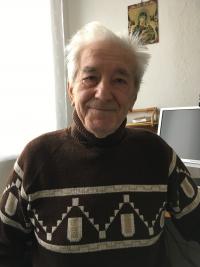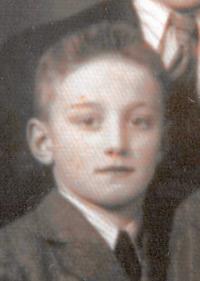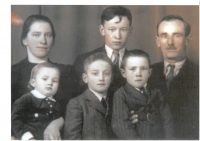Those were the times when people learned not to work

Stáhnout obrázek
Vladimír Rafaj was born on February 8, 1931 in Valaská near Brezno. His parents were farming on a small homestead and at the same time worked in a metallurgical plant. Within ten years they had four sons and the family decided to use opportunity to emigrate to the United States of America. To receive the permission, they only lacked one signature from the US government, which they didn’t obtain due to the outbreak of the Second World War. Quite vividly Vladimír remembers the fights that took place in the surroundings of his village, when many times his life was in danger as well. However, it didn’t take long and one totality was exchanged for another, which affected his wider family. After an unsuccessful attempt to emigrate abroad, his younger brother Július was imprisoned for 14 years. Július was allowed to write letters only to his brother Vladimír and only he could visit him once in Jáchymov. Luckily, he could live without any bigger turbulences. Only after November 1989, as a member of the village government, he observed with great misunderstanding, how then the already former regime administered common property, which were his parents forcibly deprived of four decades ago.


